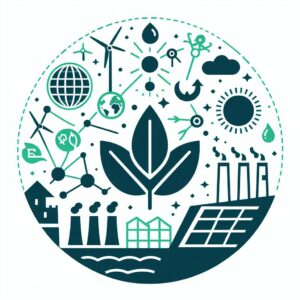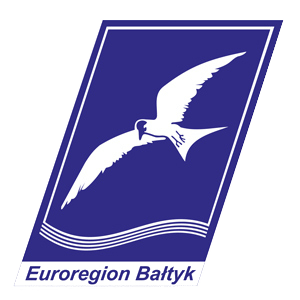Informacje z Euroregionu Bałtyk

SCONEtl-ne News Projects SCONE English pll_66559e6f7c5b6 SCONE
PROJECT SCONE - The Network for Cooperation towards Sustainable Development in the Southern Baltic
We are pleased to inform you that the project has been approved for implementation under the Interreg South Baltic program funds, under the name “SCONE - The Network for Cooperation towards Sustainable Development in the Southern Baltic”.
This is very good news, as the partnership includes as many as three Polish organizations:
The Association of Polish Communes Euroregion Baltic, acting as the Project Partner and umbrella organization for the Associated Partners and the Associated Partners from:
The Municipality of the City of Gdańsk – represented by ZSO No. 6 in Gdańsk The Municipality of the City of Elbląg – overseeing local high schools: II General Secondary School and the Technical School Complex in Elbląg The project will be implemented from July 1, 2024, for the next 36 months.
PROJECT PARTNERS:
The project leader is the Danish organization CELF – Center for Business-Oriented Education Lolland-Falster
Centre for School and Learning, University College Absalon, DK
Project Secretariat
Kringelborg Allé 7, DK 4800 Nykøbing F Denmark Tel. +45 6163 2875
www.celf.dk, www.facebook.com/celfonline
Contact person: Kristine Zeuthen Jeppesen KRZJ@celf.dk
Other full partners:
Chair for Business Economics and Entrepreneurship Education, University of Rostock, DE Rietavas Laurynas Ivinski Gymnasium, LT Rietavas Tourism and Business Information Centre, LT The Association of Polish Communes Euroregion Baltic, PL
BASIC INFORMATION:
The SCONE project is a continuation of efforts related to working with schools and youth in the field of ecology within the GreenUp project.
The main theme is sustainable development curricula in high schools and pro-ecological activities, working with teachers and students, and strengthening extracurricular education. The project aims to fill this critical gap by developing and implementing innovative educational programs that will equip youth with the knowledge and skills needed to take meaningful action in the face of the global climate crisis. By fostering a sense of agency and collective responsibility, we aim to inspire and equip the coming generations to be leaders in combating climate change.
The SCONE project focuses on strengthening cooperation in the Southern Baltic region by addressing students' climate issues through cross-border cooperation. Its goal is to support cooperation, knowledge exchange, and innovation to promote innovative teaching methods and extracurricular activities. These initiatives will enable students to inspire each other and create regional networks to address global climate challenges at the local and regional levels. Students will develop their cross-border collaboration skills by working together on sustainability issues. Their efforts will be showcased at sustainability camps and hackathons, encouraging active participation in tackling climate challenges. The project recognizes the crucial role of schools and teachers in creating meaningful challenges that inspire and offer both learning and action potential. Teachers will play a key role in facilitating and supporting the educational activities of young people while giving them the freedom to develop their own initiatives.
The project's outcome will be the creation of a network of organizations with enhanced collaboration capacity. These organizations will work together to promote sustainable development using a holistic approach encompassing the entire school. High school and teacher college teachers will increase their collaboration capacity by focusing on education for sustainable development as a teaching practice.
To close the classification process, where the SCONE partnership team is currently, please send the original documents (as soon as possible) – in the form of the original partnership declaration, the so-called Letter of Commitment (attached are the scans we have) to the project leader’s address:
ADDITIONAL INFORMATION:
THE GOAL OF THE SCONE PROJECT is to strengthen the collaboration capacity of high school institutions in the field of sustainable development
Regarding specific outcomes, this will primarily involve:
- Strengthening the organizational capacity of educational institutions in terms of collaboration and sustainable development management;
- Education for sustainable development;
- Student activities in the form of sustainable development;
- Research on education for sustainable development and a toolkit;
- Building educational programs for high schools around the topic.
Investments: There is a possibility to include a small amount for pilot projects in schools to engage youth and school staff. Such activities may include pilot projects with infrastructure and equipment elements. Small infrastructure or equipment can be supplementary if their contribution to achieving the action's objectives is demonstrated.
CHALLENGES:
- All educational institutions face challenges in transitioning to green and sustainable education.
- Cross-border cooperation in the Southern Baltic region is still limited due to language, culture, lack of mutual knowledge, and logistical challenges.
- Many young people are concerned about the changing climate and feel they can do little.
- Adults, including teachers, are slower to accept the changes required for the green transition.
- The changing climate is a serious problem.
TARGET GROUPS:
Main target group:
- Institutional management
Secondary target group:
- High school and teacher education institution teachers
Higher target group:
- High school and teacher education institution students
The project aims to strengthen the collaboration capacity of institutions in the Southern Baltic region.
Two networks will be created.
One cross-border network for institutional managers and how sustainable development is integrated into activities, management, and teaching. Through a series of workshops, study visits, and virtual meetings, experiences will be shared on specific topics, such as cafeteria food, energy-saving measures, and teaching methods. Cross-border networks for professionals with similar interests will be created, e.g., cafeteria managers, teachers, building managers, etc.
A cross-border network of youth sustainability ambassadors will be created. They will undergo training and receive certification as youth sustainability ambassadors. Members of this network will reach out to their peers and form school-level groups. The network will conduct national and cross-border activities. Sub-border youth networks may be created, e.g., youth particularly interested in green entrepreneurship or youth particularly interested in plant-based food.
The project will be supported by research (activities), which may include studies on GEN Z and GEN Alpha.
Role of the Association:
Umbrella partner for Polish organizations (local governments and high schools located in their areas)
This will enable the participation of local governments and schools in project tasks at no cost.
PROJECT SCONE STHB.04.01-IP.01-0004/23
